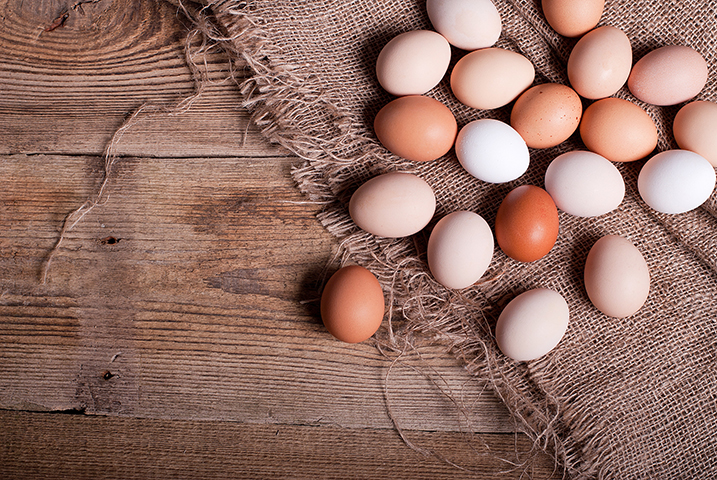Many an eater has a preference when it comes to the color of eggs. Some claim brown eggs are more natural, or that white eggs taste better.
The truth is the difference in hue doesn’t significantly affect what is actually eaten. Most eggs have roughly the same amount of calories (around 80), with similar vitamin and mineral contents; the color of the shell just reflects the breed of the hen.
Elements that can affect the overall nutrition of eggs include the hen’s environment and diet. According to a 2014 study by the U.S. National Library of Medicine National Institute of Health, hens allowed to roam in sunshine produce three to four times more vitamin D in their eggs than hens raised in cramped coops. Another study by the same group in 2017 concluded that hens fed a diet rich in fat produced more flavorful eggs than those fed a low-fat diet.
Proper storage of eggs is the final key to a delicious meal; keep them in a consistently cool place and eat them soon after buying or collecting.

























